

TL;DR:
Yes, Google has indexed the words present in the domains used for this experiment and includes them in the information retrieval process, showing the domains as results to a search containing the word.
The goal of this experiment is to check if Google takes into account the words present in a domain when selecting website documents from the index in order to retrieve them as results in response to a query.
I always thought that using keywords in a domain does not help to rank directly, but allows to carry on link building actions with a higher level of anchor text optimization that could otherwise bear a risk of algorithmic penalty to a normal domain.
For that reason, I feel like it’s interesting to do an experiment to see if Google ignores the words existent in a domain.
If it ignores them, it would be possible to guess that they don’t help to rank because if they are not included in the index, Google won’t be able to evaluate them as a part of the website thus it should not use them for ranking.
If it does not ignore them, that would be at least a signal that those domain words are available in the index to be evaluated. Whether it uses them to rank or not is out of the scope of this experiment and cannot be inferred from the results achieved, whatever they are.
Hypothesis
Google ignores the words present in a domain name, excluding them from the index and the information retrieval process.
Experimental group
3 domains containing a made-up word that does not return any results when queried in Google:
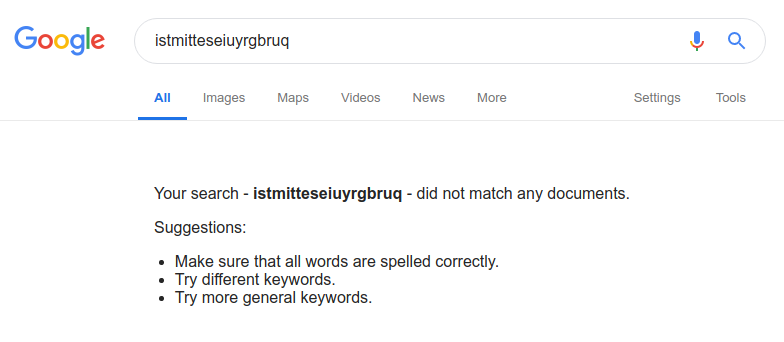

- Domain 1: contains just the made-up word. It’s the equivalent of an exact match domain or EMD.
- Domain 2: contains a generic word and the made-up word, both separated by a dash. It’s the equivalent of a partial match domain or PMD.
- Domain 3: contains a generic word and the made-up word immediately after, without any separation element between them. It would also fall into the typology of PMD.
Control group
3 domains that don’t present the keywords but point to websites that include it somewhere in the html code. This way, the possibility of Google excluding the word for being made-up or any other reason is discarded
- Domain 4: contains the made-up word in the body text.
- Domain 5: contains the made-up word in the alt text of an image inserted on the page.
- Domain 6: contains the made-up word in the title tag.
Independent variable
The domain includes the made-up word.
Dependent variable
The website associated to each domain shows up in the Google search results after doing a search with the made-up word.
Process
The 3 domains of each group are registered at the same time with the extension .win and a basic html website is created on each.
They are added to GSC the same day and their indexation is requested. They get indexed almost immediatly:
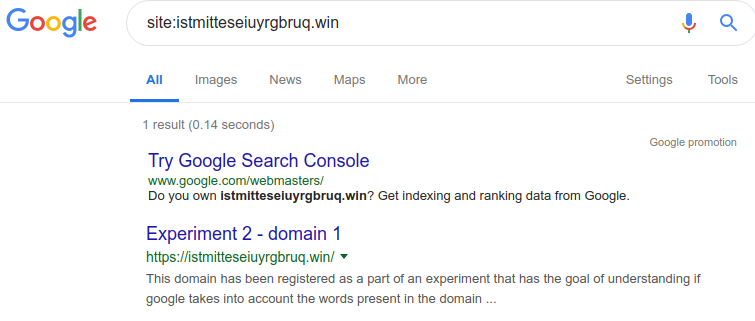

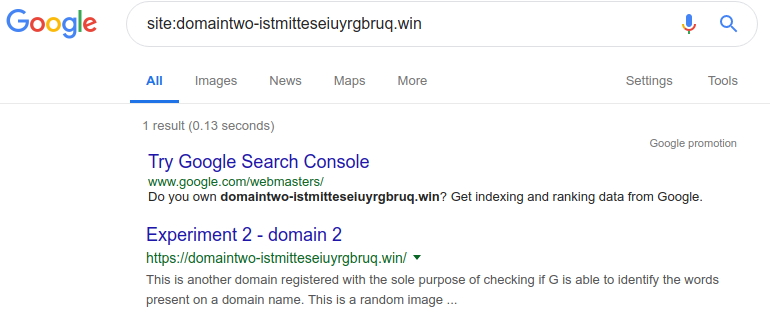

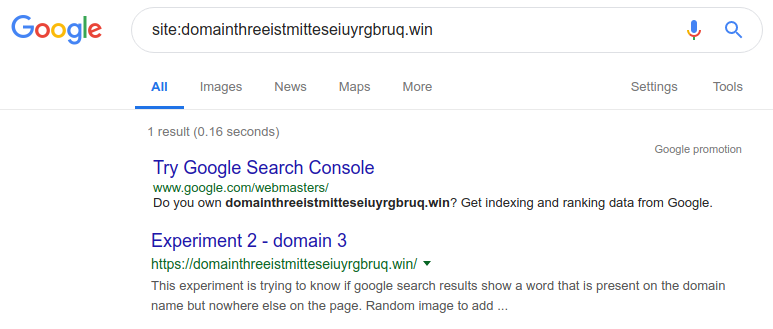

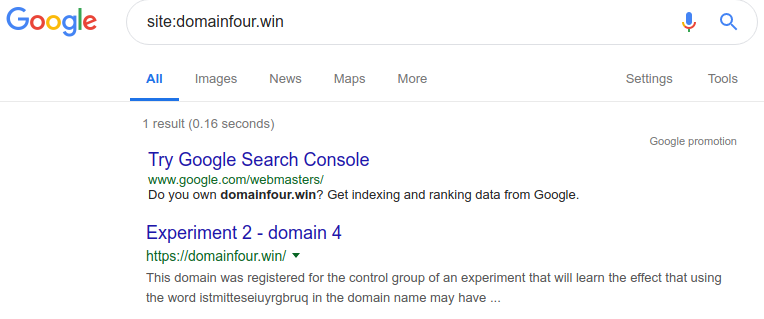

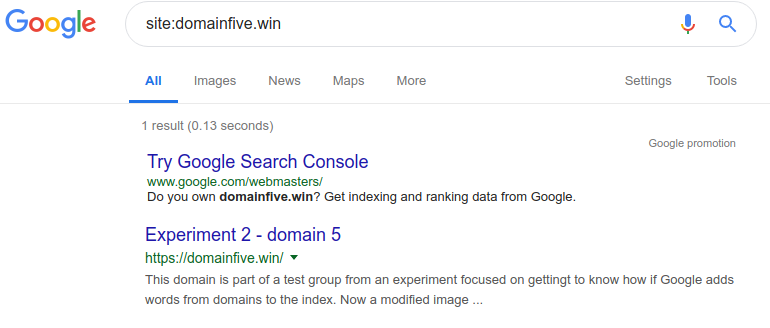



A week after the results are checked by searching the made-up word in Google.
Results
At the moment of publishing this post, none of the domains show up when doing a normal search. The only results shown are the typical scrapers:
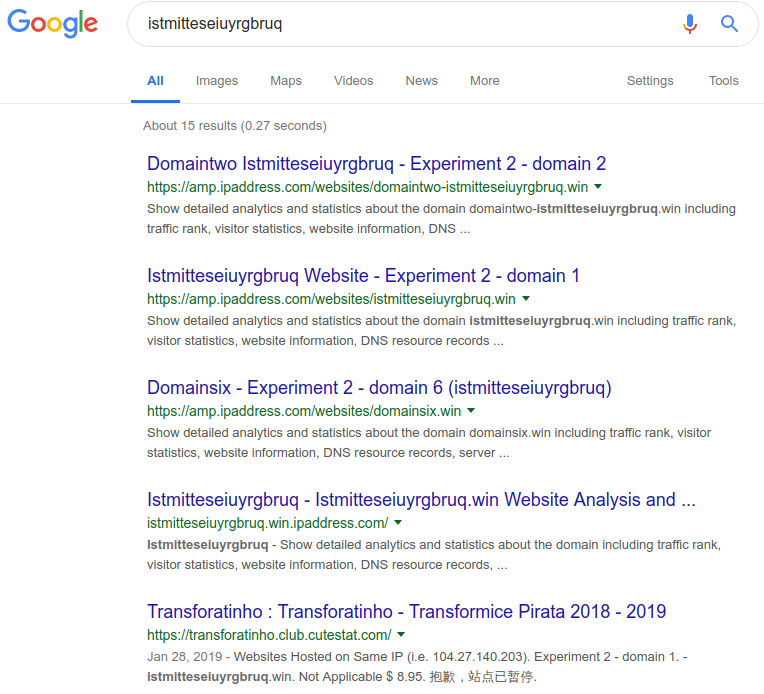

Instead, if some neutral search operator is added the 3 control group domains and 2 experimental group domains start to show:
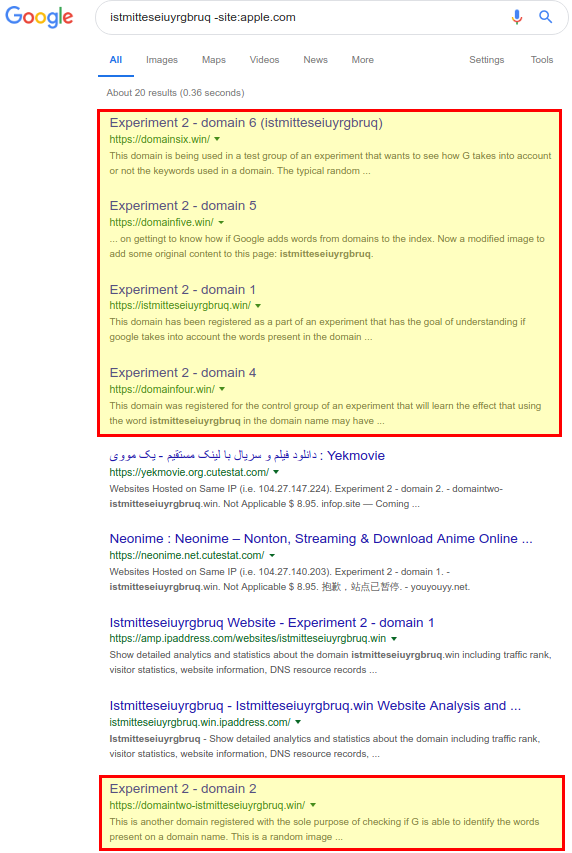

Conclusions
The fact that the search returns 2 of the 3 experimental group domains is indicative that Google keeps in the index and is including in the information retrieval process the made-up word present in the domains used in this experiment. This shows that the initial hypothesis of this experiment was wrong.
The domain left excluded from the search results is number three:


It’s interesting how this domain contains also the made-up word, but since it’s not sepparated from the generic word it is possible that Google is interpreting both as a single word and not matching it with the document related to this domain in the index while doing a search.
